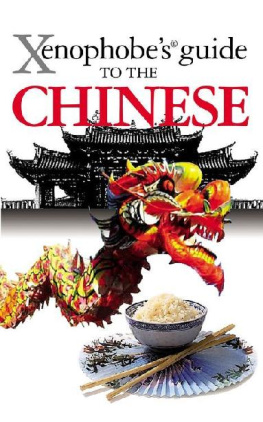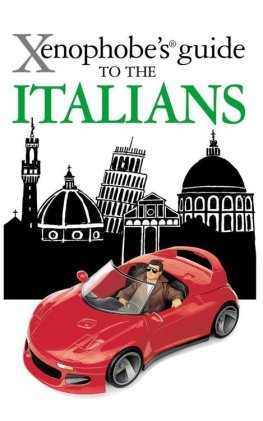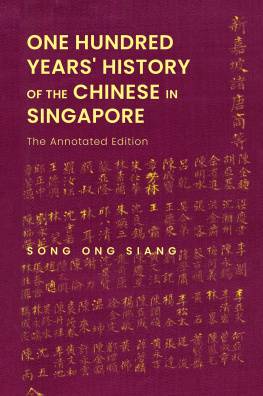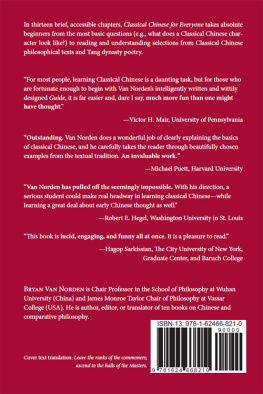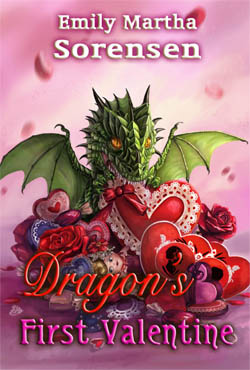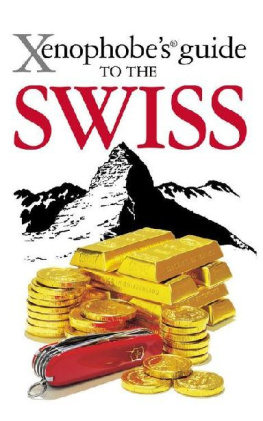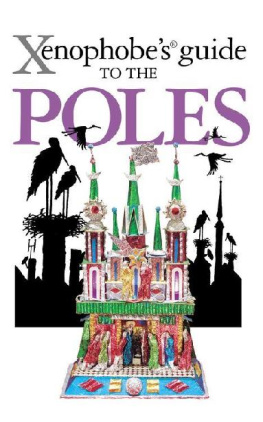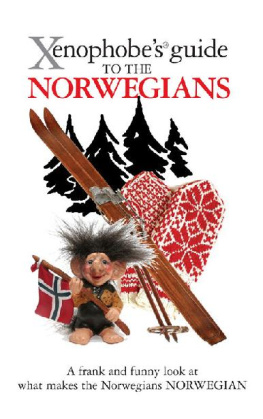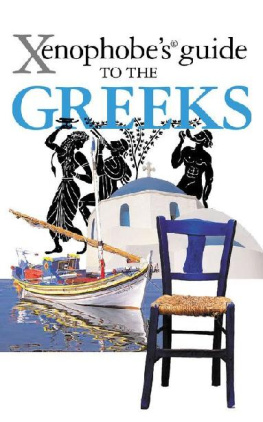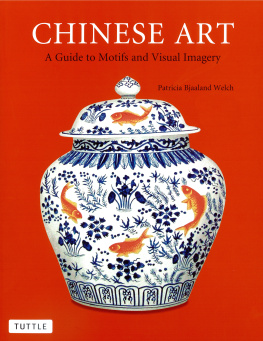Zhu Song - Xenophobe’s® guide to the Chinese
Here you can read online Zhu Song - Xenophobe’s® guide to the Chinese full text of the book (entire story) in english for free. Download pdf and epub, get meaning, cover and reviews about this ebook. City: London, year: 2013, publisher: Xenophobe’s guides, genre: Science. Description of the work, (preface) as well as reviews are available. Best literature library LitArk.com created for fans of good reading and offers a wide selection of genres:
Romance novel
Science fiction
Adventure
Detective
Science
History
Home and family
Prose
Art
Politics
Computer
Non-fiction
Religion
Business
Children
Humor
Choose a favorite category and find really read worthwhile books. Enjoy immersion in the world of imagination, feel the emotions of the characters or learn something new for yourself, make an fascinating discovery.
Xenophobe’s® guide to the Chinese: summary, description and annotation
We offer to read an annotation, description, summary or preface (depends on what the author of the book "Xenophobe’s® guide to the Chinese" wrote himself). If you haven't found the necessary information about the book — write in the comments, we will try to find it.
Xenophobe’s® guide to the Chinese — read online for free the complete book (whole text) full work
Below is the text of the book, divided by pages. System saving the place of the last page read, allows you to conveniently read the book "Xenophobe’s® guide to the Chinese" online for free, without having to search again every time where you left off. Put a bookmark, and you can go to the page where you finished reading at any time.
Font size:
Interval:
Bookmark:


The Chinese occupy a land that is about the same size as the USA but with five times the number of people.
There are 1.4 billion Chinese (which is 21% of the worlds total population), compared with 50 million English, 58 million French, 82 million Germans, 127 million Japanese, 144 million Russians, 307 million Americans and 1.1 billion Indians.
The Chinese have no need for xenophobia because they have no cause for envy. Not everyone has the good fortune to be born into the oldest unbroken civilisation on earth.
The name for China, zhong guo (the Middle Kingdom), was first used by the ancient Zhou dynasty who believed themselves to be the middle or centre not just of the civilised world, but also of the universe. A glance at the various names China has had through the ages reinforces this belief: divine land, great land, prosperity, and quite simply, big. While some nations may find the size of China overwhelming, the Chinese take pride in their vast rambling landscape the bigger the better.
Having always been at the very centre of things, the Chinese are a people who revel in the spotlight, in company, and noise.
Having thus always been at the very centre of things, the Chinese are a people who revel in the spotlight, in company, and noise. Born to talk and eat (both in prodigious quantities), they are also very diligent and practical that booming economy isnt going to run itself.
Being a hardy lot, while others seek refuge in order or retreat into self-examination in the midst of chaos, the Chinese carry on unperturbed, and wait for the tide to turn. To be a zhong guo ren (Chinese person) is to be cast from the same mould as Confucius wise, philosophical, stoical. What is there to be anxious about?
Anyone who does not have the propitious fate to be born Chinese is a foreign devil.
Behind the composed exterior, however, lies a fierce nationalism. To the sons and daughters of the Middle Kingdom, their country is an emotional issue, worthy of patriotic songs, red scarves, and rousing slogans. Even if you scratch a Chinese who is critical of his Peoples Republic, you will expose a deep-seated pride in his ancestral land. No other nation is even remotely qualified to compare with the Middle Kingdom.
Outsiders should never be tempted into criticising China. The world wonders what might happen if a country of 1.4 billion decided to jump up and down at the same time. Better not upset them and put this to the test.
Anyone who does not have the propitious fate to be born Chinese is a foreign devil. Large numbers of these devils have big noses and funny habits, of which eating smelly cheese is just one of many unfathomable oddities . In their presence the Chinese adopt the tone of a distinguished university professor greeting a disquieting student intake.
Of their Eastern neighbours, there is one thing that needs to be kept in mind when conversing with a Chinese, and it is this: the Chinese quite simply do not like the Japanese. It is a long story, several hundred years old, and mostly to do with war, rape, pillage, and the poaching of their language. To admit to liking them is at best suspicious, and at worst traitorous.
The Chinese respect the Europeans for their history and culture, even though they do not stretch as far back as Chinas.
They regard South and North Koreans as little brothers, offering friendship and warnings respectively, and sometimes pocket money in exchange for co-operative behaviour and lack of nuclear temper tantrums. The Indians they see as having great computing brain power, in competition with home talent for Silicon Valley jobs. The rest of Asia is just that the rest of Asia. They are either greatly influenced by China anyway, or are too insignificant to care about.
The Chinese respect the Europeans for their history and culture, even though they do not stretch as far back as Chinas. With Americans they have a complicated love/hate relationship. They dearly love to defy that nations meddling, but are quick to import their capitalist ideas, branded goods, and TV programmes.
Russia, populated with muscular alcoholics, business tycoons, svelte gymnasts, and maths gurus, is looked upon as an ex-older brother. Although they are familiar neighbours with a lengthy shared border, China keeps an ever-vigilant eye on Russia the result of lingering tensions from territorial wrangles during the Cold War. Nevertheless, united by their shared suspicion of America, they co-operate to veto any important-sounding policies that Washington may dream up.
Although they are familiar neighbours with a lengthy shared border, China keeps an ever-vigilant eye on Russia.
With many African countries they enjoy a chummy relationship , in a kind of third-world solidarity and graduate student exchange pact. Although the average Chinese may not know much about Africa, the government has sought to strengthen ties in these quarters under the guise of friendship, while flashing subliminal messages of give all your oil to us and not the West.
To the rest of the world the Chinese are sublimely indifferent.
The Chinese are racist in much the same way as a child is inadvertently racist. They do not mean any harm, but as they dont get the chance to see different races up close (except on TV), they are rather fascinated when they come into contact with them. They dont hesitate to say what they think and gladly leap (where others fear to tread) into sweeping generalisations and stereotypes.
Younger generations are more familiar with other races, even going so far as to mix with them.
World summits are a delight for the Chinese, who do not separate participants geopolitically into countries , but anthropologically into races. Thus the bai ren (white people) are being extremely meddlesome as usual; the zong zhong ren (brown people, including the South Asians and Latin Americans) are probably thinking about dinner; the hei ren (black people) have wandered off and are not paying the least bit of attention; leaving the huang zhong ren (yellow people) with all the serious work of displaying the appropriate gravitas.
Younger generations are more familiar with other races, even going so far as to mix with them. As a result they are much less intrigued and much less racist. But they still think they are the best race, being none of the following: lazy, smelly, crude, unfilial, backward, cruel, or loose.
One of the worst insults for a Chinese is to be called a banana yellow on the outside, white on the inside.
92 per cent of Chinese are ethnically Han, which means that more than 9 out of 10 people can blend right in and get lost in the vast homogeneous mass. This is what the world typically thinks of as Chinese. The rest of the Middle Kingdom is carved up between 55 minorities who earn their keep by adding a splash of colour to the Chinese ethnic tapestry. They sing, they dance, they twirl, they whirl, they frisk and frolic, prance and cavort, all the while dressed in eye-catching costumes with clashing colour schemes. They beam and are happy to be part of the mighty motherland. Since there are so few of them, relatively speaking, they are exempt from the One Child Policy and are given the green light to joyfully go forth and multiply. One wouldnt want them to die out then everyone in China really would look the same.
Font size:
Interval:
Bookmark:
Similar books «Xenophobe’s® guide to the Chinese»
Look at similar books to Xenophobe’s® guide to the Chinese. We have selected literature similar in name and meaning in the hope of providing readers with more options to find new, interesting, not yet read works.
Discussion, reviews of the book Xenophobe’s® guide to the Chinese and just readers' own opinions. Leave your comments, write what you think about the work, its meaning or the main characters. Specify what exactly you liked and what you didn't like, and why you think so.

